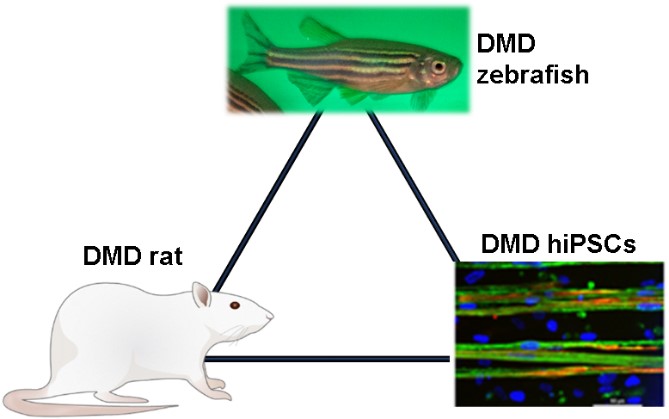
Using a 3-model approach to study the developmental biology and epigenetics of DMD and to identify novel drug therapies
Duchenne muscular dystrophy (DMD) is a muscle wasting disease caused by mutations in the DMD gene, which encodes dystrophin. There are presently no cures. The current standard of care is corticosteroid treatment, which delays the progression of muscle dysfunction but also has serious side effects. Although DMD is a progressive disease, there is growing evidence for early-stage defects in myogenesis and gene expression in DMD. By understanding how these early developmental defects initiate and how they drive DMD pathology, we may be better positioned to identify and utilize DMD therapies. The Maves Lab is using a zebrafish DMD model to investigate the developmental biology and epigenetics of DMD as well as to identify new drug therapies for DMD. We recently identified novel epigenetic small molecules that improve muscle degeneration in DMD zebrafish (https://doi.org/10.1186/s13395-020-00251-4). We also work closely with Dr. David Mack’s lab (https://iscrm.uw.edu/faculty/david-l-mack/) and their human iPSC and rat models of DMD. The long-term goal of this project is to take advantage of our three DMD models to identify conserved (and, thus, likely important) molecular and developmental defects underlying DMD. We also expect that potential therapeutic approaches that are beneficial to all three models will have more likelihood of success in DMD clinical trials.